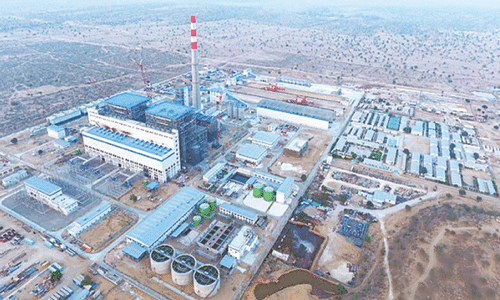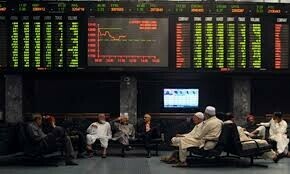 The United States is witnessing a rush among foreign companies for purchase of US firms, assets, shares in a manner that it gives some Americans an uneasy feeling as if their country was being sold out from under them.
The United States is witnessing a rush among foreign companies for purchase of US firms, assets, shares in a manner that it gives some Americans an uneasy feeling as if their country was being sold out from under them.
While companies doing aggressive buying are mostly from Canada and Europe which initiated 69 per cent of the deals last year, Asian companies, particularly from the Middle East, India and China, have also stepped up their purchases. They launched 23 buyouts this year and had purchased 62 in 2007, nearly double 2006’s total and more than four times 2005’s. They constitute a small portion of the buyers but are increasingly viewed with concern.
To have an idea how fast US companies were being sold at discounted rates, BusinessWeek, quoted American comedian Lewis Black making a remark recently in the popular TV programme ‘The Daily Show’: “It’s the End of an Empire Sale and everything must go! We’re so hard up for cash we’re dismantling America and selling it for scrap.” He was referring, among other buyouts, to last month’s $800 million purchase by the Abu Dhabi Investment Council of a 90 per cent stake in New York’s Chrysler Building.
In the past five years, 2,331 US firms with a total value of $772.3 billion were purchased by foreign buyers. In 2007, 614 US firms, valued at $294.4 billion, were sold, up from 226 firms valued at $49.6 billion in 2003. Recent big deals include the July 13 acquisition of Anheuser-Busch, the owner of Budweiser, by a Belgian brewer for $52 billion.
On July 21, Swiss biotech company Roche said it will take over the rest of San Francisco-based Genentech (DNA) that it doesn’t already own for $43.7 billion. And on July 23, Japanese insurer Tokio Marine Holdings announced plans to buy US insurance company Philadelphia Consolidated Hold-ing for $4.39 billion.
According to the weekly, foreign buying in 2008 has slowed slightly reflecting the global slowdown in merger-and-acquisition activity. By last month, 266 deals valued at $121 billion had been announced for this year, compared to 541 deals, totalling $155.1 billion, in all of 2006. The pace of buying of would have accelerated this year had there been no worries caused by the US’s credit crisis and weakening of the economy. But since the buyers would put their money in safe ventures, they wouldn’t want to buy insecure businesses which could hit bottom anytime.
There are several reasons why foreign buying has increased and may continue in the months ahead. One factor is the weakness of the dollar which has made US companies cheaper. The euro is near record highs against the dollar, up 13.6 per cent in the past year. The dollar index, showing the dollar’s strength against a basket of foreign currencies, is down nine per cent from a year ago. But a weak dollar may not be the lone factor to attract foreign investors. A foreign company may pay less in its native currency, but it also gets less for cash flow and profits are in US currency. However, in case of a hard asset, this logic doesn’t work.
One thing not clear is the politics of American hawks which can slow down the pace of current US buyouts. In 2006, DP World, owned by the United Arab Emirates, was blocked by anti-Arab Congress-men in its efforts to buy the management of several US ports, by raising national security concerns. Then, a Chinese corporation was stopped from acquiring US oil firm Unocal also on security reasons.
The problem is that some Americans think that under US-led globalisation, capital would only move in one direction – from the US to non-US world. What has happened over the years is that global capital has started moving both ways. The West, generally speaking, seems to have come to terms with non-western (Arab and Asian in particular) investment coming to their shores.
With the passage of time, sovereign wealth funds (SWFs) caused uneasiness in the West’s corporate world. In 2007, the Saudi investment fund SABIC acquired General Electric’s plastics business for $11.6 billion and the Abu Dhabi Investment Authority bought a $7.5 billion stake in troubled banking giant Citigroup, following an investment of the same amount in well-known equity firm Carlyle Group. Earlier last year, China had invested three billion dollars in a leading equity US firm, Blackstone Group. And the government of Dubai took a five per cent stake in media giant Sony.
Acquisition of famous brands of the West, the US in particular, by developing world firms brings with it considerable social implications for western society. Today, the so-called BRIC nations – Brazil, Russia, India, and China – are home to many of global 500 companies, some of which are the fastest-growing that could soon topple old industry leaders. These include China’s Johnson Electric, the Hong Kong-based company which is the world’s biggest maker of small motors used in autos, home appliances, power tools and business equipment. India’s Tata Group, the Mumbai-based conglomerate, operates more than 90 firms across industries including chemicals, automotive, communications, consumer products and steel. In 2007, Tata Steel acquired steelmaker Corus Group for more than $12 billion, making it the sixth-largest steel company in the world.















































Dear visitor, the comments section is undergoing an overhaul and will return soon.